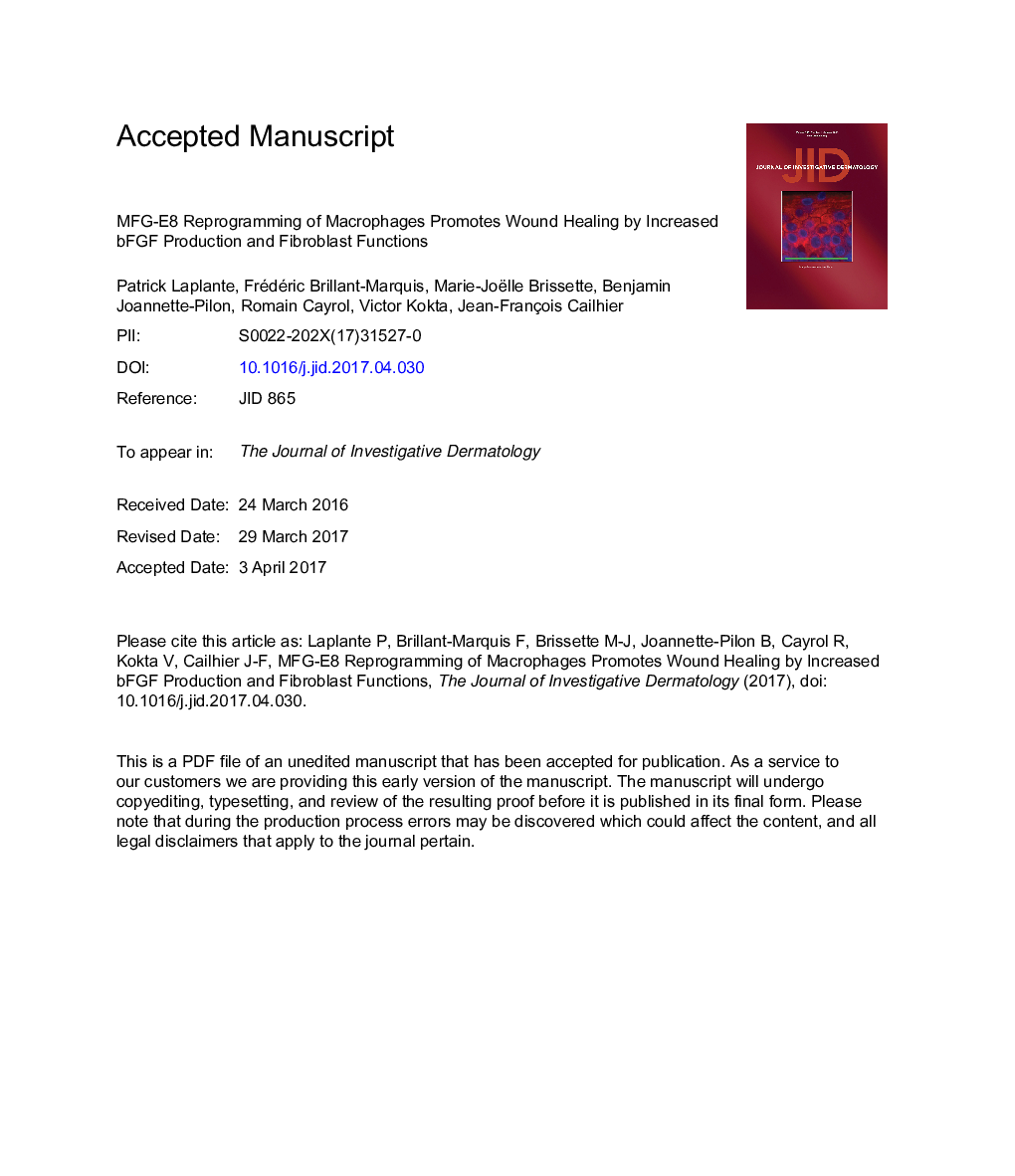| Article ID | Journal | Published Year | Pages | File Type |
|---|---|---|---|---|
| 5649201 | Journal of Investigative Dermatology | 2013 | 27 Pages |
Abstract
Macrophages are essential for tissue repair. They have a crucial role in cutaneous wound healing, participating actively in the inflammation phase of the process. Unregulated macrophage activation may, however, represent a source of excessive inflammation, leading to abnormal wound healing and hypertrophic scars. Our research group has shown that apoptotic endothelial and epithelial cells secrete MFG-E8, which has the ability to reprogram macrophages from an M1 (proinflammatory) to an M2 (anti-inflammatory, pro-repair) phenotype. Hence, we tested whether modulation of macrophage reprogramming would promote tissue repair. Using a mouse model of wound healing, we showed that the presence and/or addition of MFG-E8 favors wound closure associated with an increase in CD206-positive cells and basic fibroblast growth factor production in healing tissues. More importantly, adoptive transfer of ex vivo MFG-E8-treated macrophages promoted wound closure. We also observed that MFG-E8-treated macrophages produced basic fibroblast growth factor that is responsible for fibroblast migration and proliferation. Taken together, our results strongly suggest that MFG-E8 plays a key role in macrophage reprogramming in tissue healing through induction of an anti-inflammatory M2 phenotype and basic fibroblast growth factor production, leading to fibroblast migration and wound closure.
Keywords
Related Topics
Health Sciences
Medicine and Dentistry
Dermatology
Authors
Patrick Laplante, Frédéric Brillant-Marquis, Marie-Joëlle Brissette, Benjamin Joannette-Pilon, Romain Cayrol, Victor Kokta, Jean-François Cailhier,
